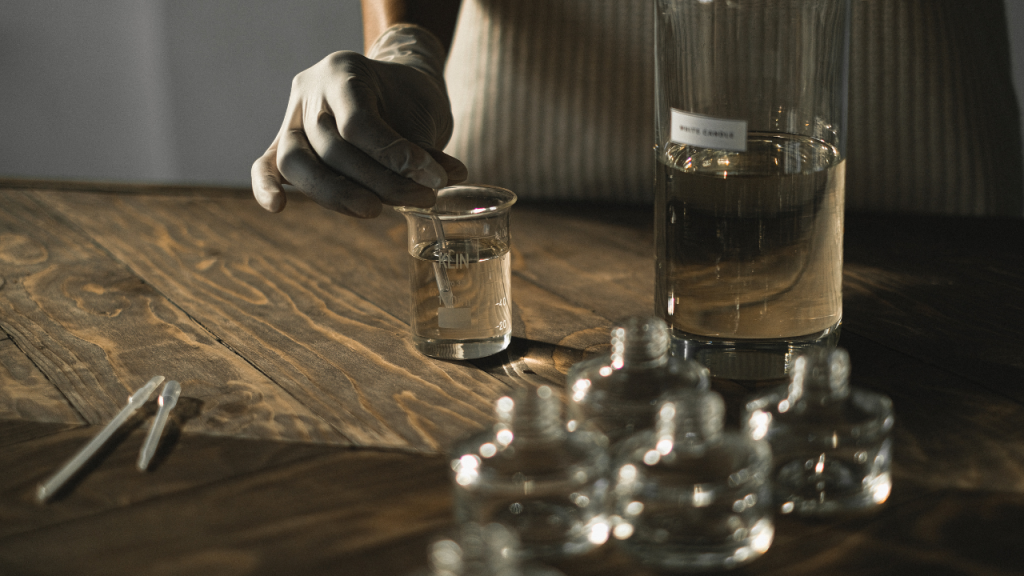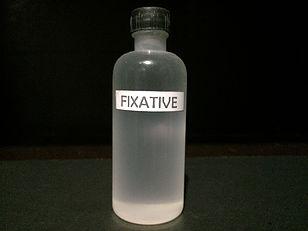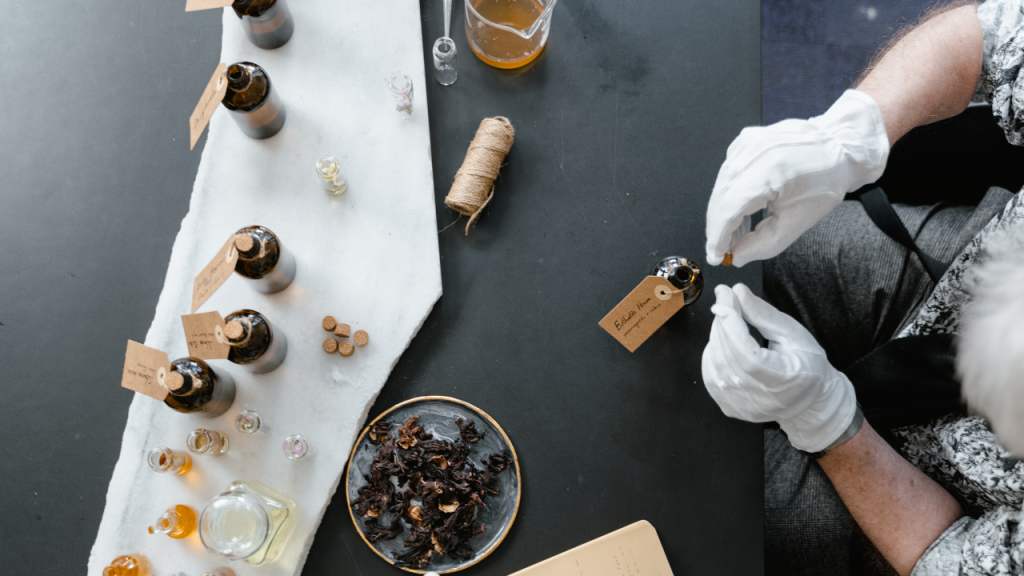Ever wondered why some perfumes linger on your skin for hours while others fade away in minutes? The answer lies in a crucial ingredient: perfume fixatives. These unsung heroes of fragrance formulation are the backbone of scent longevity and stability. Let’s explore what fixatives are, how they work, and why they’re essential for every memorable perfume.
Table of Contents
ToggleWhat Are Perfume Fixatives?
A fixative in perfumery is a substance—natural or synthetic—that slows down the evaporation of volatile fragrance ingredients, helping the scent last longer on your skin. Fixatives “fix” the aroma, ensuring that the perfume’s character and intensity are preserved from the first spritz to the final dry-down.
How Do Fixatives Work?
Perfume is made up of top, heart, and base notes. The top notes are the most volatile and fade quickly, while the base notes are heavier and last the longest. Fixatives, often found in the base notes, work by:
- Equalizing vapor pressures: They stabilize the evaporation rates of all ingredients, so the scent unfolds gradually and harmoniously.
- Anchoring the aroma: By slowing the release of volatile compounds, fixatives help the fragrance “stick” to your skin.
- Enhancing tenacity: They increase the overall staying power and sillage (the scent trail) of the perfume.
Types of Perfume Fixatives

Fixatives can be grouped into several categories, each with unique properties and uses:
1. Natural Fixatives
- Resins: Benzoin, labdanum, myrrh, frankincense, tolu balsam, storax.
- Woods & Roots: Sandalwood, vetiver, patchouli.
- Animal-derived (now mostly synthetic): Musk, civet, ambergris (now replaced by ethical synthetics).
2. Synthetic Fixatives
- Aromatic chemicals: Ambroxide, muscone, benzyl salicylate (2).
- Odorless solvents: Benzyl benzoate, triethyl citrate, diethyl phthalate—these have very low vapor pressures and help slow evaporation without altering the scent.
3. Functional Categories
- True fixatives: High molecular weight substances that slow evaporation (e.g., benzoin).
- Arbitrary fixatives: Odorous compounds that impart a note throughout all stages (e.g., oakmoss, patchouli).
- Exalting fixatives: Enhance and carry other notes (e.g., musk) (5).
- So-called fixatives: Odorless, high-boiling-point substances that increase the overall boiling point of the blend (e.g., amyris oil).
Why Are Fixatives Essential in Perfume?

- Longevity: Fixatives are the key to a fragrance that lasts all day, making them indispensable in both mainstream and niche perfumes.
- Balance: They prevent certain notes from overpowering others, ensuring a well-rounded scent profile (3).
- Aromatic Integrity: Fixatives help maintain the intended character of a perfume, so it smells as the perfumer envisioned from start to finish.
Common Fixatives in Modern Perfumes
- Sandalwood oil: Sweet, woody, and blends beautifully with florals and orientals.
- Patchouli oil: Earthy, rich, and a staple in woody and oriental bases.
- Vetiver oil: Woody, earthy, and adds depth and staying power (5).
- Benzoin resin: Warm, sweet, and a classic fixative in amber and oriental scents.
- Ambroxide: A synthetic ambergris alternative, prized for its longevity and ethical sourcing (2).
How to Spot a Good Fixative in Your Perfume
- Lasting scent: If your fragrance lingers for hours, it likely contains effective fixatives.
- Smooth dry-down: A well-blended, evolving scent profile is a sign of balanced fixative use.
- Consistent character: The perfume maintains its intended aroma from first spray to final fade.
Conclusion
Perfume fixatives are the unsung heroes that transform fleeting scents into unforgettable experiences. Whether natural or synthetic, these ingredients are essential for any fragrance that aims to leave a lasting impression. Next time you enjoy a perfume that stays with you all day, remember: it’s the fixatives working their magic behind the scenes.
FAQs
1. Are fixatives safe for skin?
Yes, most modern fixatives—especially synthetics—are rigorously tested for safety and are used at low concentrations (typically 3–5%).
2. Do all perfumes contain fixatives?
Nearly all quality perfumes use fixatives to ensure longevity and balance.
3. Can I make a long-lasting perfume at home?
Yes! Use base notes like sandalwood, patchouli, or benzoin as natural fixatives in your DIY blends.
4. Are animal-derived fixatives still used?
Rarely. Most are now replaced by ethical, sustainable synthetics.
5. Do fixatives change the scent of a perfume?
Some do impart their own aroma, but many are chosen for their subtlety and ability to enhance other notes without overpowering them.
Want to learn more about the science of scent? Visit SCENTsciencebeauty.com for expert guides, fragrance tips, and the latest in perfume innovation! Follow us on social media for daily inspiration.







